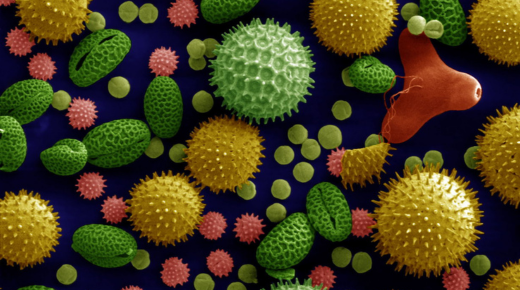1. Introduction to Environmental Allergies
Environmental allergies occur when the immune system reacts to substances in the environment, such as pollen, dust, mold, or pet dander. These allergies can cause a range of symptoms, from mild to severe, affecting daily life and overall health.
2. What is ICD-10?
ICD-10 stands for the International Classification of Diseases, 10th Revision. It is a coding system used by healthcare providers to classify and code all diagnoses, symptoms, and procedures. It helps in standardizing medical records and billing processes.
3. Importance of ICD-10 Codes for Allergies
ICD-10 codes are essential for accurately documenting and diagnosing environmental allergies. They help healthcare providers communicate effectively about patient conditions, ensure proper treatment, and facilitate insurance billing.
4. Common Symptoms of Environmental Allergies
Symptoms of environmental allergies can include sneezing, runny or stuffy nose, itchy eyes, throat, or skin, coughing, and wheezing. These symptoms can vary in severity and impact the quality of life if not properly managed.
5. ICD-10 Codes for Environmental Allergies
Several ICD-10 codes correspond to different types of environmental allergies. These codes help healthcare providers specify the exact nature of the allergy, leading to more accurate diagnosis and treatment.
6. Allergic Rhinitis Due to Pollen (ICD-10: J30.1)
Allergic rhinitis caused by pollen is a common type of hay fever. Symptoms include sneezing, nasal congestion, and itchy eyes. The ICD-10 code J30.1 is used to document this condition, aiding in targeted treatment and management.
7. Allergic Rhinitis Due to Animal Hair and Dander (ICD-10: J30.81)
This type of allergic rhinitis is triggered by exposure to animal hair and dander. The ICD-10 code J30.81 is used to classify this condition, helping healthcare providers design appropriate allergy management plans.
8. Allergic Rhinitis Due to Dust (ICD-10: J30.2)
Dust mites are a common cause of allergic rhinitis. Symptoms can include sneezing, nasal congestion, and itchy eyes. The ICD-10 code J30.2 is used for documentation and treatment planning.
9. Allergic Rhinitis Due to Mold (ICD-10: J30.89)
Mold allergies can cause respiratory symptoms and are often triggered by damp environments. The ICD-10 code J30.89 is used to document mold-related allergic rhinitis, facilitating effective treatment strategies.
10. Seasonal Allergic Rhinitis (ICD-10: J30.2)
Seasonal allergic rhinitis, also known as hay fever, occurs during specific seasons when certain allergens, like pollen, are prevalent. The ICD-10 code J30.2 helps healthcare providers diagnose and manage this condition.
11. Perennial Allergic Rhinitis (ICD-10: J30.3)
Perennial allergic rhinitis occurs year-round and is often caused by indoor allergens like dust mites or pet dander. The ICD-10 code J30.3 is used for continuous management and treatment of this condition.
12. Allergic Conjunctivitis (ICD-10: H10.1)
Allergic conjunctivitis affects the eyes, causing redness, itching, and tearing. The ICD-10 code H10.1 is used to document this condition, ensuring patients receive appropriate eye care and allergy treatment.
13. Atopic Dermatitis (ICD-10: L20.9)
Atopic dermatitis, or eczema, can be triggered by environmental allergens. Symptoms include itchy, inflamed skin. The ICD-10 code L20.9 helps in diagnosing and treating this chronic skin condition.
14. Asthma Due to Environmental Allergies (ICD-10: J45.909)
Asthma symptoms can be exacerbated by environmental allergens. The ICD-10 code J45.909 is used to document asthma related to allergies, guiding effective asthma management and treatment plans.
15. Contact Dermatitis Due to Allergens (ICD-10: L23.9)
Contact dermatitis occurs when the skin reacts to an allergen. Symptoms include redness, itching, and rash. The ICD-10 code L23.9 helps in diagnosing and treating allergic contact dermatitis.
16. Sinusitis Triggered by Allergies (ICD-10: J32.9)
Allergic reactions can lead to sinusitis, causing inflammation and infection of the sinuses. The ICD-10 code J32.9 is used to document and manage sinusitis caused by allergies.
17. Anaphylactic Reaction Due to Allergens (ICD-10: T78.2)
Anaphylaxis is a severe, potentially life-threatening allergic reaction. The ICD-10 code T78.2 is used to document anaphylactic reactions to environmental allergens, ensuring prompt and effective treatment.
18. Urticaria Due to Allergens (ICD-10: L50.9)
Urticaria, or hives, can be triggered by environmental allergens. Symptoms include itchy, raised welts on the skin. The ICD-10 code L50.9 helps healthcare providers diagnose and treat allergic urticaria.
19. Diagnosing Environmental Allergies
Accurate diagnosis of environmental allergies involves a thorough medical history, physical examination, and allergy testing. Skin prick tests and blood tests can help identify specific allergens causing symptoms.
20. Managing Environmental Allergies
Management of environmental allergies includes avoiding known allergens, using medications such as antihistamines and corticosteroids, and implementing lifestyle changes. Regular follow-ups with healthcare providers ensure effective management.
21. Allergy Immunotherapy (Allergy Shots)
Allergy immunotherapy involves regular injections of small amounts of allergens to build up tolerance. This treatment can reduce the severity of allergic reactions over time and is documented using specific ICD-10 codes.
22. Medications for Environmental Allergies
Medications such as antihistamines, decongestants, and nasal corticosteroids are commonly used to treat environmental allergies. These medications help alleviate symptoms and improve quality of life.
23. Preventive Measures for Environmental Allergies
Preventive measures include using air purifiers, maintaining clean living environments, and avoiding outdoor activities during high pollen seasons. These strategies help reduce exposure to allergens and prevent symptoms.
24. Consulting an Allergy Specialist
Consulting an allergy specialist can provide personalized care and treatment plans. Specialists use ICD-10 codes to accurately document conditions and tailor treatments to individual needs, ensuring effective allergy management.
25. Conclusion: Importance of ICD-10 in Allergy Management
ICD-10 codes play a crucial role in diagnosing and managing environmental allergies. They ensure accurate documentation, guide effective treatment plans, and facilitate communication between healthcare providers and patients. Understanding these codes helps in managing allergies effectively and improving overall health.




